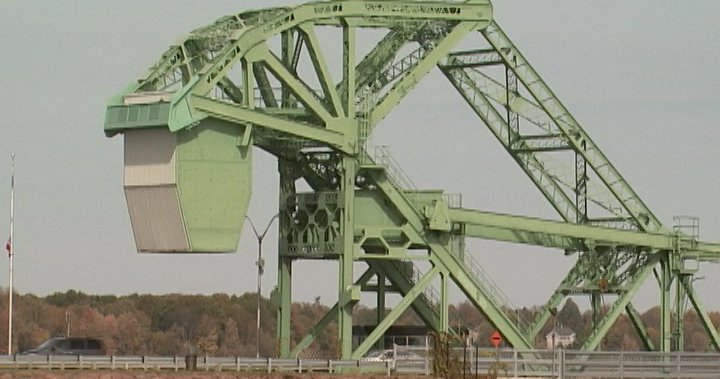Canada
Ottawa, engineering firm facing $8M lawsuit over failed Ontario bridge repair

Landform Civil Infrastructures Inc. (LCI) Sues Federal Government and Engineering Firm for $8 Million
A legal battle has erupted over the structural failure of the LaSalle Causeway bridge in Kingston, Ontario, as Landform Civil Infrastructures Inc. (LCI) has filed a lawsuit against the federal government and an engineering firm. The company is seeking over $8 million in damages, claiming it was wrongly blamed for the bridge’s collapse. According to court documents obtained by Global News, LCI alleges that Public Services and Procurement Canada (PSPC) breached its contract, withheld payments, and spread false information about its role in the incident. The company also accuses Sigma Risk Management Inc., the engineering firm hired to assess the failure, of negligence in misinterpreting the cause of the collapse. LCI claims it followed the government-approved repair plan, contrary to Sigma’s claims that it deviated from established procedures.
Allegations of Contract Breach and Defamation by PSPC
LCI’s lawsuit asserts that PSPC terminated its contract without justification, withheld payments, and shared incorrect information about the company’s involvement in the bridge’s failure with third parties. The company is seeking damages for unpaid invoices, legal costs, and lost business opportunities resulting from the alleged defamation and breach of contract. However, it is important to note that these claims have not yet been proven in court. PSPC has declined to comment on the matter, stating that it cannot discuss potential financial liabilities or legal aspects related to the incident. Similarly, Sigma Risk Management Inc. has not yet filed a statement of defense, and the case remains ongoing.
Technical Dispute Over Cause of the Bridge Failure
The lawsuit highlights a significant technical dispute over the cause of the LaSalle Causeway bridge’s structural failure. While Sigma Risk Management Inc. concluded that LCI deviated from the required repair procedures, LCI insists it followed the government-approved plan. This disagreement has led to allegations of negligence against Sigma, with LCI arguing that the engineering firm’s misinterpretation of the facts has damaged its reputation and financial standing. The outcome of this legal battle could have significant implications for how infrastructure projects are managed and how accountability is assigned in cases of structural failures.
Broader Implications for Infrastructure Repair Contracts
The case raises important questions about the oversight and accountability in public infrastructure repair projects. LCI’s allegations suggest that government agencies and contractors must ensure transparency, fairness, and accuracy in their dealings, particularly when assigning blame for project failures. If LCI’s claims are proven, it could set a precedent for how similar disputes are handled in the future. Conversely, if the government and engineering firm are found to have acted appropriately, it could underscore the importance of adhering to established protocols in infrastructure repair.
Ethical and Legal Challenges in Assigning Accountability
The legal battle also brings to light ethical and legal challenges in assigning accountability for failures in public infrastructure projects. While governments have a responsibility to ensure the safety and integrity of public structures, contractors also have a duty to perform their work to the required standards. In this case, LCI is arguing that it fulfilled its contractual obligations, while PSPC and Sigma are being accused of unfairly shifting blame. The resolution of this dispute will depend on a thorough examination of the evidence and the application of contract law principles.
Moving Forward: Implications for Future Infrastructure Projects
As the legal case unfolds, it is crucial for all parties involved to focus on resolving the dispute in a way that upholds fairness and accountability. For LCI, a favorable outcome could restore its reputation and secure the compensation it believes it deserves. For the government and engineering firms, the case serves as a reminder of the importance of transparent communication and rigorous oversight in infrastructure projects. Ultimately, the resolution of this case could have far-reaching implications for how similar disputes are handled in the future, ensuring that public infrastructure projects are completed safely, efficiently, and with accountability.